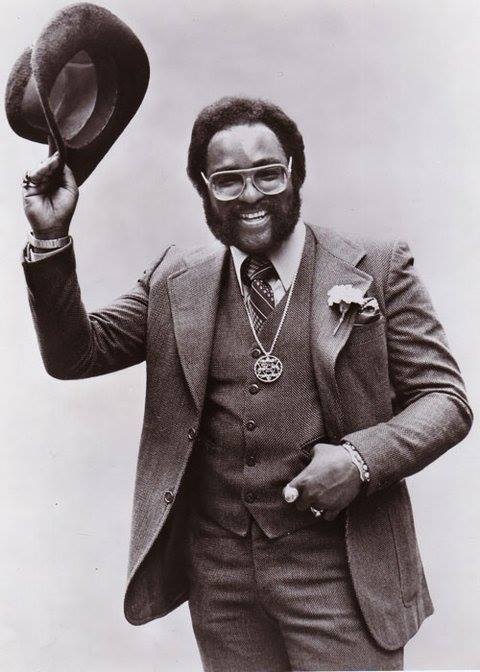Philippé Wynne (aka Philippe Escalante Wynn; né Walker; April 3, 1941 – July 14, 1984) was an American singer. Best known for his role as a lead singer of The Spinners (a role he shared with fellow group members Bobby Smith, and Henry Fambrough). Wynne scored notable hits such as “How Could I Let You Get Away”, “The Rubberband Man”, and “One of a Kind (Love Affair)”. After leaving The Spinners, Wynne never regained the same success, although he featured in hits by other artists such as “(Not Just) Knee Deep” by Funkadelic. Wynne died of a heart attack while performing at a nightclub.
Born in Detroit, Michigan, and raised in Cincinnati, Ohio, Wynne began his musical career as a gospel singer. He soon switched to R&B and attained some measure of success, singing with Bootsy Collins’s Pacemakers in 1968 and with James Brown’s J.B.’s shortly thereafter. Wynne then spent time in Germany as the lead singer of the Afro Kings, a band from Liberia, before he replaced his cousin, G. C. Cameron, as one of the lead vocalists for The Spinners. He sang with the group until 1977, during which they achieved several successful albums and singles.
Wynne then launched a solo career with Alan Thicke as his manager. His first album Starting All Over was released on the Cotillion label in 1977. His fortunes turned upwards again when he joined George Clinton’s Parliament-Funkadelic in 1979. He performed with them on several recordings, and was a featured vocalist on the Funkadelic single “(Not Just) Knee Deep” (a #1 hit on the Billboard R&B chart). While associated with Parliament-Funkadelic, Wynne also appeared on the Bootsy Collins album Sweat Band. Wynne released the solo album Wynne Jammin’ in 1980, and made a guest appearance on the song “Something Inside My Head” by Gene Dunlap, and in the song “Whip It” by the Treacherous Three. Wynne’s final album was the self-titled Philippé Wynne, released by Sugar Hill Records in 1984.
On July 13, 1984, while performing at Ivey’s nightclub in Oakland, California, Wynne suffered a heart attack and died the following morning.
His parents, DeGree Walker and Annie (née Wynn) divorced in November 1947 in Cincinnati. Around 1952, Philippe and his three siblings — Annie Walker, who later became an opera singer, Michael Leon Walker, and Margaret Walker — were placed in the New Orphan Asylum for Colored Children (which closed in 1967), in the Avondale neighborhood of Cincinnati, on Van Buren Street. Their father, DeGree Walker, was granted custody after the divorce, although he worked as a contractor in construction and had to travel. Their mother, Annie, had run off to Detroit with another man.
“ I guess the hardest part to take was being there and knowing that both of your parents were still alive. ”
— Philippè Wynne, 1981
Around 1956 Philippé and his brother, Michael, ran away from the orphanage and headed to Detroit to find their mother. In Detroit the two formed a gospel group called the Walker Singers. This lasted until Philippe adopted his mother’s surname, Wynn (initially without an “e”), and moved on to The Spinners as lead singer.
Wynne married Ava Leflor on February 1, 1973, in Las Vegas. They had two sons, Emmanuel Wynn (1973–2001) and Alvarez Escalante Wynn (1975–1999). Ava was from Compton, California, and the four of them moved back to California sometime after Philippé left The Spinners. After that, Philippe and Ava eventually divorced. Philippé’s younger son, Alvarez, at age 24, was killed in 1999 from a drive-by shooting in Compton. Philippe’s older son, Emmanuel, accidentally drowned the following year while trying to save a man. He was living in Daytona Beach, Florida, at the time. Emmanuel was posthumously given the Carnegie Medal for his heroism.
Written by Dianne Washington
Philippe Wynn

